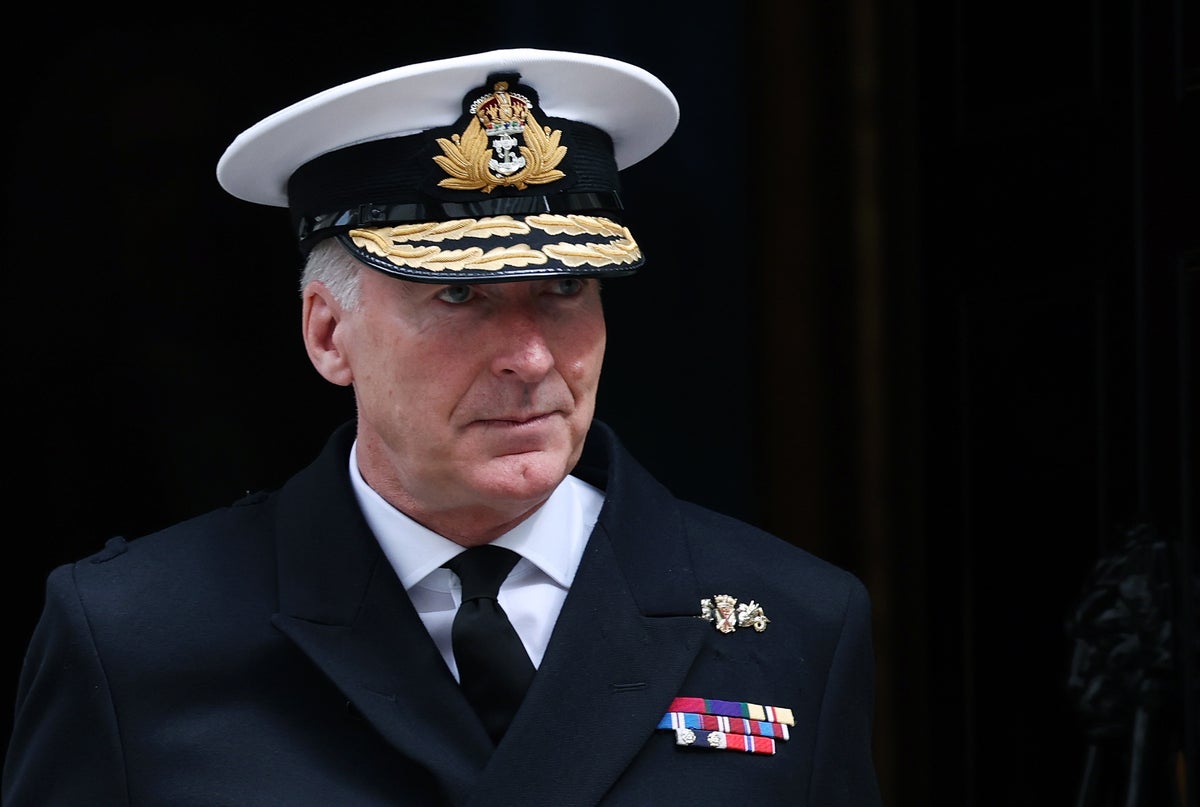
Britain’s military chief, Admiral Sir Tony Radakin, insists he has not “fallen out” with the head of the army, whose impending departure has been blamed on unhappiness with cuts to the force and destructive internal politics.
Appearing before the House of Commons defence committee, Admiral Radakin denied General Sir Patrick Sanders was being “forced out” of his post for publicly expressing concern about the future of the army and the failure to invest adequately in equipment such as armour.
There had been rumours of clashes between General Sanders and Admiral Radakin, who, it has been claimed, suggested the next head of the army could be from the Royal Marines – who are part of the Royal Navy.
But Admiral Radakin, who is chief of the defence staff, said reports that General Sanders had been “forced out ... are all nonsense”.
“Patrick and I haven’t fallen out,” he told MPs, adding that there “was never any intention” that he would be replaced by a marine.
Admiral Radakin wanted to stress that General Sanders had been appointed as army chief for two years by defence secretary Ben Wallace, and that his tenure was going to come to an end next year in any case.
MPs on the committee, who expressed admiration for General Sanders’ ability, asked why his term in post had not been extended as was widely expected to happen.
Tobias Ellwood MP, the Conservative chair of the committee, said: “Patrick Sanders is highly respected, he’s seen as a strategist, he’s moving the forces forward. The question is, why was he only given a two-year contract anyway? And even if he was, why wasn’t there consideration for extension?”
Admiral Radakin responded: “I think you would have to ask the defence secretary ... the tenure of chiefs is very much something for the defence secretary.”
General Sanders had already held another senior position for three years, as head of strategic command, he added. “I think it was a view about the talent management that we have for the people in the army. I think you’d have to go into more detail with Ben Wallace, because it’s his decision.”
Committee members also expressed surprise that Mr Wallace had personally attended the senior appointments committee. This was a break from past procedure, they said, and could lead to the perception that the process was being politicised.
The exit of Patrick Sanders has raised concerns about underlying issues in the UK’s armed forces— (PA)
Admiral Radakin acknowledged there had been changes, but added: “I chair the senior appointments committee ... the defence secretary [is] merely in attendance, he’s just understanding the process that is going on.”
Conservative MP Richard Drax wondered if General Sanders’ outspoken comments about army concerns could have led to him being pushed out. “Could you just confirm to me that both you and the defence secretary were not alarmed by him speaking out quite as truthfully as he did, and told him ‘Look, I’m sorry, you’ve just [got to] either shut up or go?” the MP asked.
Admiral Radakin denied that this was the case, saying that General Sanders had been told his appointment was for two years and that “something that he said two months ago, six months ago, has not impacted on when he was leaving the job”.
Mr Wallace said at the weekend that General Sanders had been “outstanding” but that “generals come and go”.







